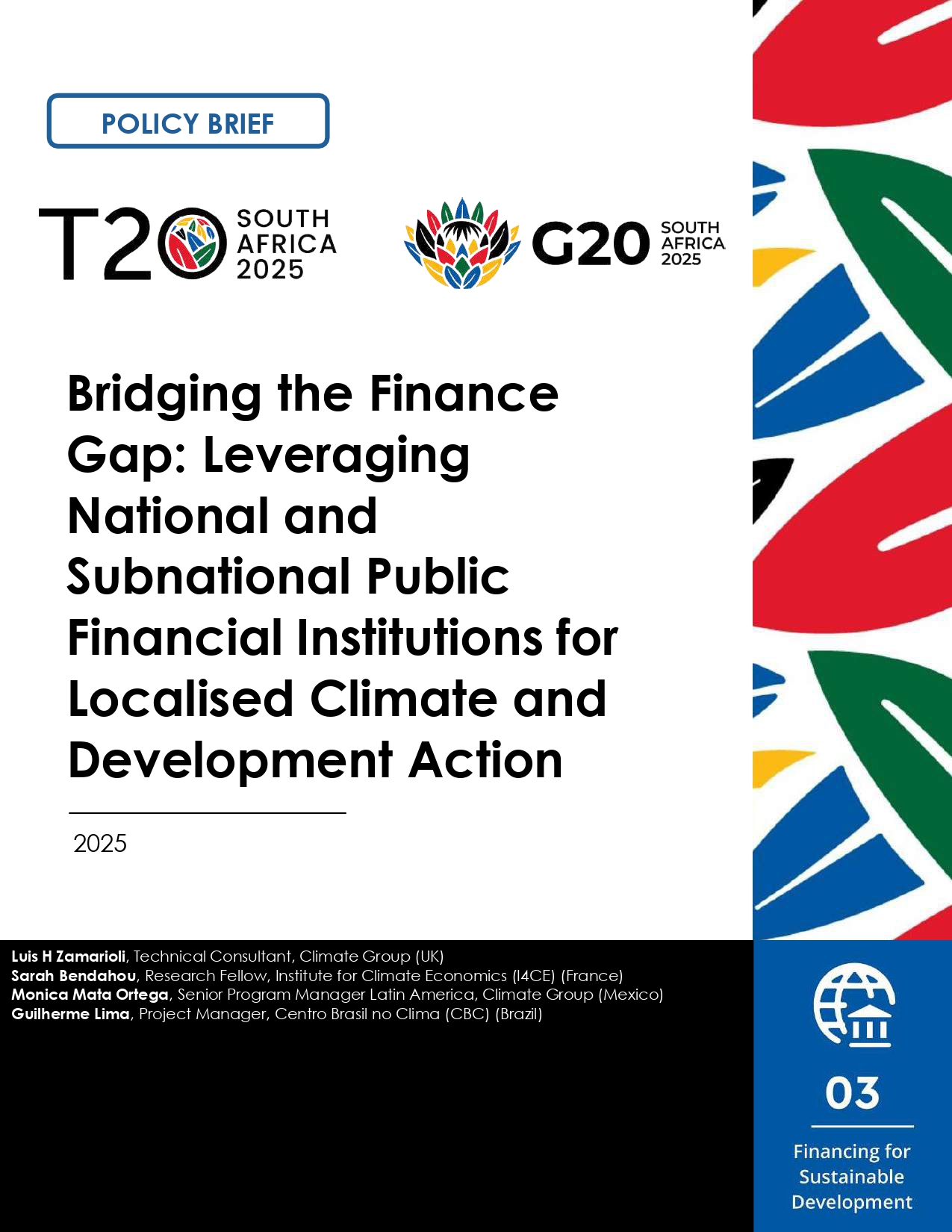Bridging the Finance Gap: Leveraging National and Subnational Public Financial Institutions for Localised Climate and Development Action
National Public Banks (NPBs) and Subnational Public Financial Institutions (SPFIs), including development banks and agencies as well as climate and green funds at the subnational level, play an increasingly vital role in financing climate action and the just transition. While national governments provide frameworks aligned with nationally determined contributions (NDCs), actual implementation occurs largely at the subnational level, which currently lacks sufficient funding. SPFIs can work as financial intermediaries, as they not only understand local needs and have stronger ties with local governments and businesses, but also access much larger volumes of capital from more diverse sources.
A key challenge in funding climate projects is project ticket size, as large investors prefer bigger deals to mitigate risks and maximise returns. A Global Impact Investing Network (GIIN) survey shows that major private and development impact investors have been channelling more capital into fewer but larger transactions (GIIN, 2024). This trade-off between economies of scale and local needs affects funders like the Green Climate Fund and Multilateral Development Banks, which increasingly strengthen a programme funding approach rather than single-project funding.
National and subnational financial intermediaries can bridge this gap by enhancing the bankability of local projects to meet new volume and additionality financial requirements. They can also advance local capacity to address finance and climate issues, development impact, and safeguards, provide tailored guidance, concessionality allocation based on a more holistic and climate-resilient approach, pilot scalable solutions, and innovative financial mechanisms to reduce risks.
There are a wide range of examples, from the Cajas Municipales in Peru to state-owned and managed development banks and agencies in Brazil, including São Paulo’s novel climate fund to the longer-established Deposit and Investment Fund of Quebec and Baden-Württemberg’s bank in Germany. Building on current analysis and understanding of best practice, this Policy Brief will explore how subnational financial intermediaries can continue to channel investments to climate and development goals and otherwise less bankable projects. For instance, by leveraging guarantees and enabling blended and sustainable finance mechanisms, thereby expanding access to finance in critical areas from innovation to climate resilience and adaptation.

